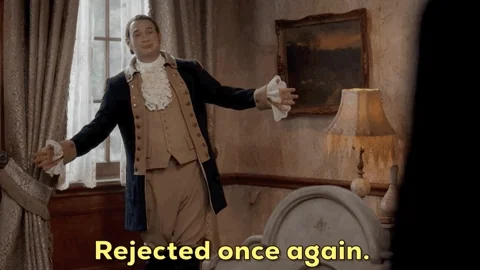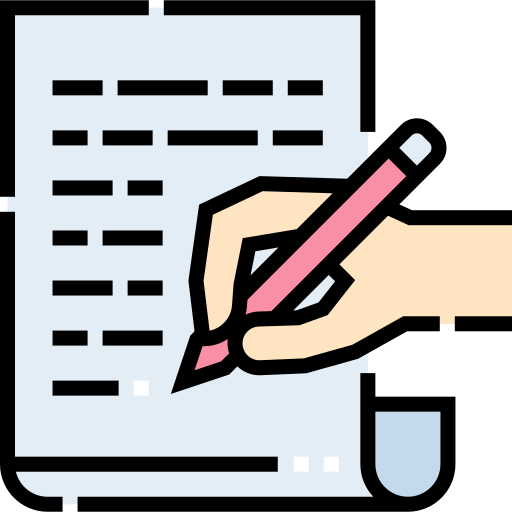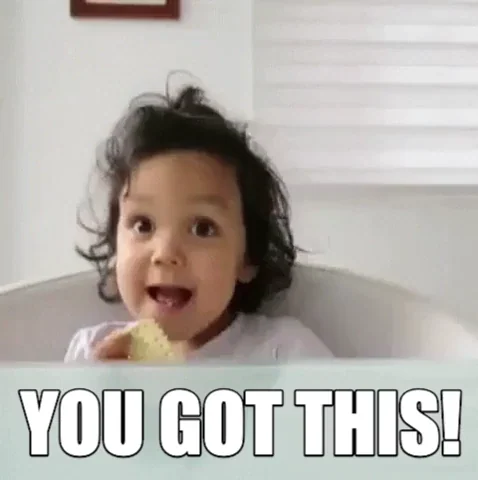After waiting for months, you finally get an email back from the job recruiter. You eagerly open it only to see,
"After careful consideration, we regret to inform you that..."

Rejection can feel discouraging. I know because I've had to read countless of these emails myself. You might have heard from others that you should learn from your failures.
But how exactly do you learn from these generic rejection emails?
Don't worry! You can learn from rejection and improve your chances of getting hired next time.
Check Your Emotional State
Take some time to first process your disappointment. Being in a poor emotional state makes it difficult to learn from your experience.
Ask yourself: "How am I feeling today? How have I been feeling this week?"
Rejection can be tough. Try not to blame the company or take it personally. Sometimes luck can play big role and it might not have anything to do with you or your ability.
Reflect On The Experience
We want to reflect with curiosity, not judgment. Ask yourself: "What can I learn from this experience to improve my chances of success in future applications?"

There are many ways to become a more attractive candidate but here are some main areas to consider:

Skills and Qualifications
Do I have all the qualifications and skills I need?
What are some core skills I'm missing?
Application Material
Did I follow instructions carefully?
Does my CV highlight all the skills/experience they are looking for?
Interview Performance
Did I confidently present myself during the interview?
Was I specific about my past experiences?
Company and Culture Fit
Am I a good cultural fit for this company?
Do I align with the company's vision and mission?
To learn how to assess if a company's culture is a good fit, read How to Find Out if a Company is For You.
Ask For Feedback
To get a better perspective on our areas of improvement, it's important to receive feedback from others. Share your cover letter and resume, or practice simulating the interview so that they can give you quality feedback.
Here are some ideas for people who can give you valuable feedback:
mentor/career coach
someone working in similar roles/industries
colleagues or peers
job interviewer/hiring manager
 Photo by Scott Graham on Unsplash
Photo by Scott Graham on UnsplashYes, you can ask the hiring manager or the recruiter! It can feel scary but it shows your commitment to growth.
For more information on how to do this, check out Harvard Business Review's recommended approach to how candidates can respond to rejection emails to improve future hiring chances.
Quiz
What are some great ways to get good feedback on your past job application? Select all that apply:
Identify Patterns And Look For Insights
Once you've taken time to reflect and gathered insight from others, you can start looking for patterns.
What are some common themes among feedback?
Which feedback stood out to you? Why?
Have you made any observations about what's been working well for you?

You don't need perfect insight — you just need a good hypothesis that you can test in your next round of applications.
Maybe after reflecting and reading other people's feedback, you noticed that you...
didn't highlight a core skill for that role
gave vague responses during the interview
forgot to add keywords from the job description
You can test these hypotheses by trying them out and see if your success rates change!
Set Actionable Goals
Now that you have some ideas on areas of improvement, it's time to put them into action.
Write down some specific actions you want to take to improve your next job application. Here are some examples:
refine your cover letter body section
spend more time researching about the company
practice situational interview questions
Identifying growth areas doesn't guarantee that you'll get the next job. But each time you reflect, gather feedback, and put them into action, you're gathering valuable insights for future success.

Try It Out!

Lisa wants to be a data analyst. After multiple rejections, she worked up the courage to ask the job recruiter for feedback, she learned that her portfolio didn't demonstrate her proficiency in SQL, a database management language.
Quiz
What should Lisa do? Select all that apply:
Take Action
Turn these experiences into a valuable learning experience!

Your feedback matters to us.
This Byte helped me better understand the topic.

